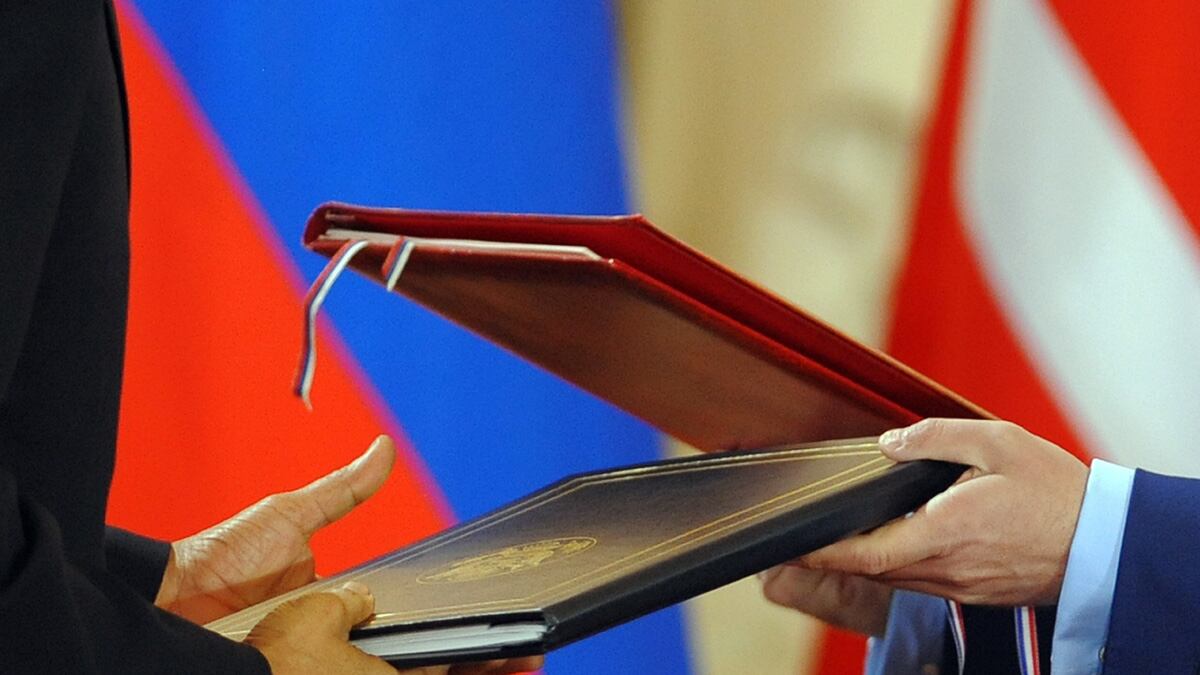American and Russian trade negotiators have resolved their remaining disagreements on auto parts, U.S. meat exports, and intellectual property, removing a key obstacle to Moscow’s entry into the World Trade Organization, U.S. and European officials tell The Daily Beast. European Union negotiators are close to agreeing to terms with Russia as well, the officials added.
The Obama administration has made Russia’s accession to the WTO the second phase of its reset with Moscow. It’s a major foreign-policy priority for the White House in this election year.
According to two U.S. officials familiar with the talks, the Russians agreed to phase out a policy of giving trade preferences for auto parts exported to Russia’s crumbling automobile industry. Russia also agreed to new, tougher laws and regulations protecting intellectual property such as computer software, movies, and music. Both Russia and the United States also agreed to new standards and health protocols for the U.S. export of poultry, pork and beef.
Michael McFaul, the senior director of Russia and Eurasian affairs at the National Security Council, told the Senate on Wednesday that the Obama administration “has been actively supporting Russia’s accession to the World Trade Organization, since Russia’s membership in the WTO will create new markets for U.S. exports and increase opportunities for U.S. companies, farmers, ranchers, investors, and workers.”
Other U.S. officials confirmed that the issues between the U.S. and Russia have been resolved. The White House, however, declined to discuss the sensitive talks on the record.

McFaul, who is Obama’s choice to be U.S. ambassador to Russia, made clear, though, that Georgia would remain an obstacle for Russia. “The WTO operates by consensus,” he said. “That means Georgia must agree to Russian accession, something it has yet to do. The government of Switzerland has helpfully volunteered to serve as a mediator helping Russia and Georgia resolve their trade-related issues. We have made it clear to Russia that there is no way to go around Georgia: the two countries must resolve their differences through the mediation process.”
The Georgian government has backed away from earlier demands that Russia allow Georgian customs agents to monitor what it calls trade corridors through Abkhazia and South Ossetia, two breakaway provinces that have hosted Russian forces since the August 2008 war, when Russia invaded Georgia following skirmishes between Georgian troops and Russian peacekeepers.
The Russian embassy and a public-relations firm representing the country’s foreign ministry declined comment. Last week Russia’s first deputy prime minister, Igor Shuvalov, told The New York Times, “We have Americans working 24 hours a day on our application in order to persuade other WTO members that Russia should get membership before the end of the year.” Obama administration officials dismissed this characterization and reiterated that diplomats were not pressuring Georgia to accept Russia’s bid to join the WTO at the expense of their concerns about international monitors.
Sergi Kapanadze, the deputy foreign minister for Georgia, told The Daily Beast this week that he has felt no U.S. pressure to drop demands for international monitors. “There is no pressure from either the United States or any other parties on this issue with Russia,” he said. “Obviously there is an interest from the United States and other parties to move forward with Russia’s accession, but this does not translate into pressure. It’s obvious our partners like America understand what are our red lines and what are our interests.”
The latest round of talks last month in Geneva over the trade issues were not resolved. “We hope Russia can come back to the table with a changed position,” Kapanadze said. “Russia’s position is, they do not want international monitoring of the cargo and goods which enter or leave the predefined trade corridors.”
It has been tradition at the WTO that all members agree to new members by consensus. This procedure, however, is not enshrined in the WTO charter. Russian officials in the past have suggested that their membership into the WTO could be approved without a consensus vote.
A draft working-party agreement outlining all of Russia’s new obligations to WTO members is expected to be completed by the end of the month. A WTO ministerial meeting is scheduled for mid-December, when Russia’s application could be approved.






